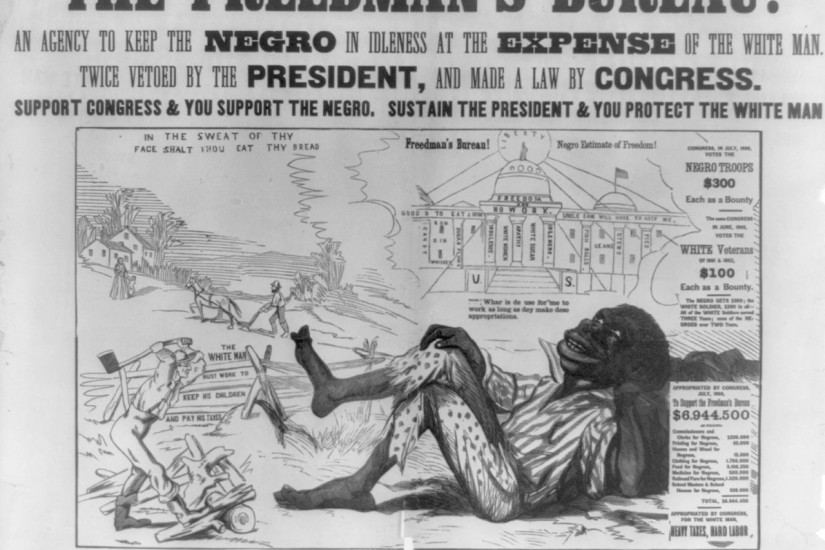The usual story of Reconstruction blames its failure on the racism of Southern whites, helped by accidental President Andrew Johnson. But Confederates did not control national politics; their stock was too low after losing a war that had killed more than 600,000 Americans and cost more than $6 billion to control anything. Northerners controlled national politics.
Reconstruction failed not because Southern whites opposed it — although most of them did — but because Northerners abandoned it. They came to believe that antebellum slaveholders were right in one important way: they had warned that poor workers must not be allowed to vote because, given the chance, they would insist on a redistribution of wealth.
Northerners in 1861 began a four-year crusade to remake the American government so that wealthy men would not dominate it. They poured out their blood and sacrificed their brothers for that cause. Ten years later, that course would be reversed. America depended not on human equality, they came to think, but rather on what slaveholders had always said: the protection of property.
The story of this momentous change depended on a strange twist of politics that brought together a coup in Paris, industrialization in New York City, and black suffrage in South Carolina in the year before a presidential election. Those three seemingly disparate events came together in a toxic mix that linked antisocialism and racism in American thought so tightly that they have never come undone.
The Threat from Below
From March through May 1871, workers in Paris established a commune. This relatively minor development in world affairs became headline news in America because in 1866, after years of failure, entrepreneurs had finally completed a transatlantic telegraph cable that linked America to Europe. The Franco-Prussian War of 1870–71 had provided sensational copy to feed a nation hungry for exciting news after its own war. With the end of that conflict, editors turned to scenes from the Commune to fill their columns.
They reported lurid stories of the Commune as a nightmare, a “wild, reckless, irresponsible, murderous mobocracy.” Workers in Paris had taken over the government and were confiscating all money, factories, and land. Their plan was to redistribute wealth from men of means to themselves.
The Philadelphia Inquirer claimed that the “Communists of Paris” were operating with the “communistic idea ‘that property is robbery.’” In that, they were echoing the International Workingmen’s Association, which, the Boston Evening Transcript warned, was made up of “agrarians, levelers, revolutionaries, inciters or anarchy, and . . . promoters of indiscriminate pillage and murder.”
